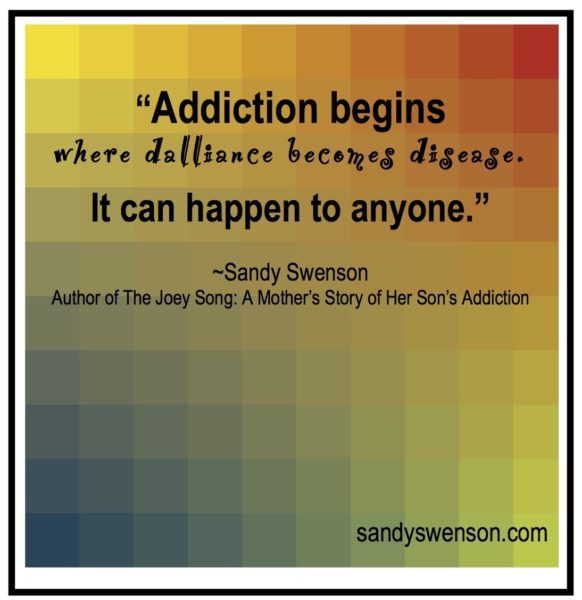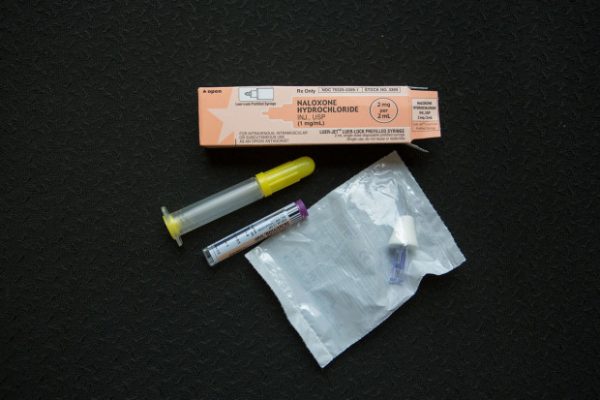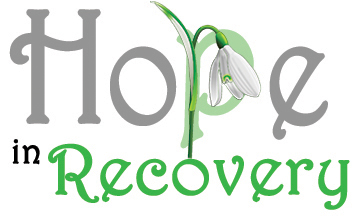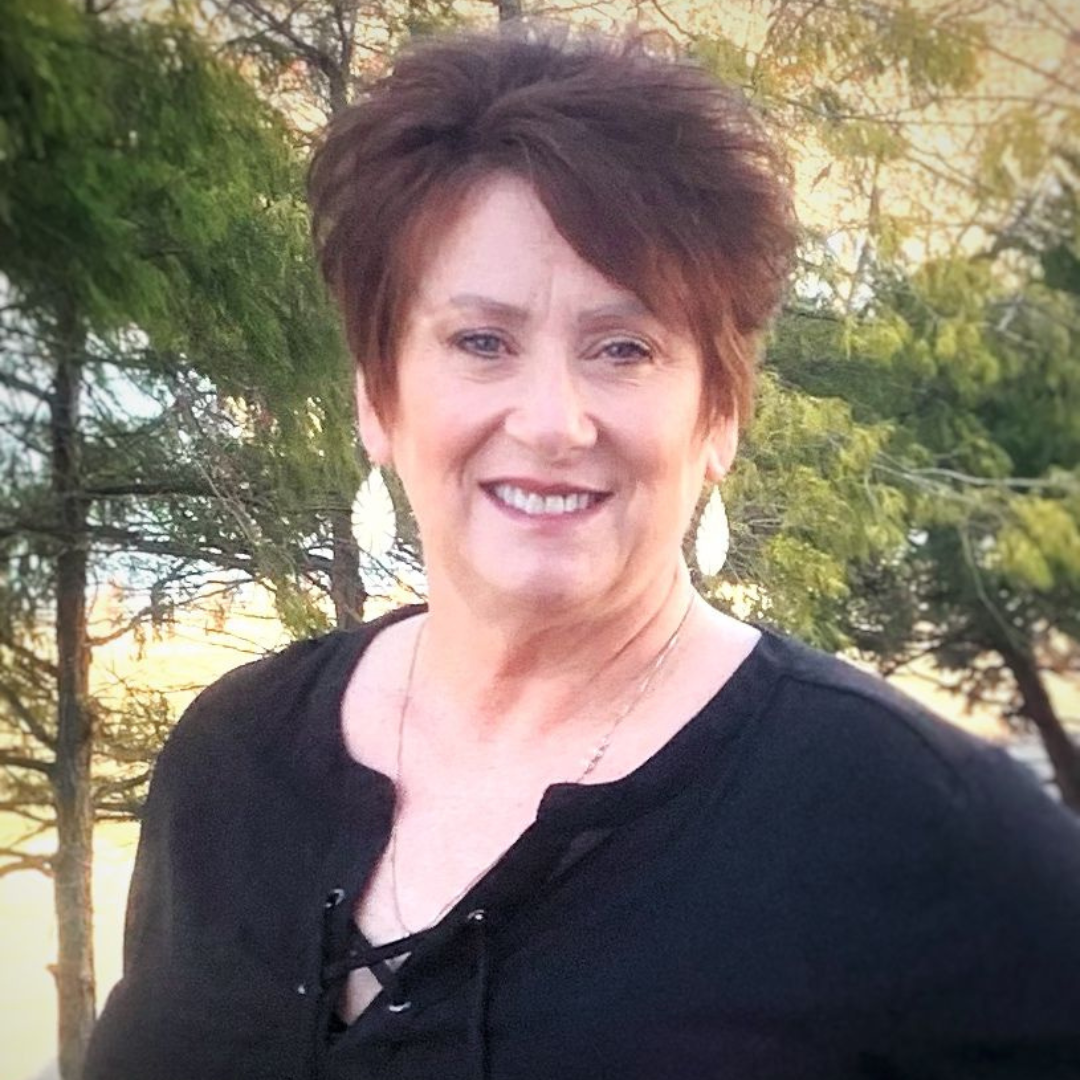By now, most of us are well aware of the enormity of the opioid crisis in our state. But I’ve noticed that plenty of people believe that their lives haven’t been touched by it personally. I would argue that we all know of an addict in our circle, whether we realize it or not.
Most folks have a certain stereotype in mind when they hear the word “addict.” Homeless, zombie-like souls, creeping around in the dead of night committing crimes to support their habit. While there are some suffering from substance use disorder who fit this description, there are many more who are incredibly high-functioning. These less-visible addicts hold down jobs — often good ones — and they have great employment records. They are college-educated, hard-working, bright individuals. Perhaps they had an injury and were over-prescribed opiate painkillers, and when the script ran out, they turned in desperation to heroin — the cheaper, more accessible street drug. Before long, they found themselves no longer using to get high, but merely to keep from experiencing the effects of “dope sickness,” or withdrawal. A local police officer I spoke with recently told me that he has encountered a number of these types of addicts through his work on the Wheeling Police Department. He introduced me to Emma* (name changed for privacy purposes) who he met when he stopped her for an expired license plate sticker. That routine traffic stop turned into an arrest for possession of drug paraphernalia. “Here was a smart, beautiful college graduate who worked two jobs to fund her student loans — and her heroin habit,” he said. “Her story had a major impact on me and my work. I began to see addiction in a different light.”
A local police officer I spoke with recently told me that he has encountered a number of these types of addicts through his work on the Wheeling Police Department. He introduced me to Emma* (name changed for privacy purposes) who he met when he stopped her for an expired license plate sticker. That routine traffic stop turned into an arrest for possession of drug paraphernalia. “Here was a smart, beautiful college graduate who worked two jobs to fund her student loans — and her heroin habit,” he said. “Her story had a major impact on me and my work. I began to see addiction in a different light.”
“Here was a smart, beautiful college graduate who worked two jobs to fund her student loans — and her heroin habit. Her story had a major impact on me and my work. I began to see addiction in a different light.” — Wheeling Police officer
Emma told me that her double life continued for years until a serious accident landed her in the intensive care unit of a local hospital and caused her secret to be revealed to her family. Ultimately, this accident made her realize that she needed to seek treatment for her addiction. Today, Emma is nearly three years into her recovery journey after long-term intensive outpatient treatment at a local clinic.
“We can and do recover,” Emma promises. “I’m living proof of it.”
However, before she made the decision to seek help, Emma overdosed and nearly died on more than one occasion. “Narcan is the reason I’m alive today,” she told me.
Emma’s mother is grateful for the drug that saved her daughter’s life more than once. “I’m a huge supporter of the use of Narcan,” she told me. “I know some people feel that its use should be limited to one time per person. But it took more than that for my daughter to make the right choice to save her life, and I pray that every mother’s child is given that same chance.”

People also operate under the false assumption that Narcan is free of charge and oppose its repeated use on those grounds. I frequently hear the argument: “It’s unfair that Narcan is free when parents can’t afford their children’s Epi-Pens.”
The truth is that while there are some grant-funded Narcan programs in place, in most cases, individual patients are charged for its use, just as they are for any other drug administered to them. In my opinion, it’s criminal to price life-saving drugs of any kind out of reach of those who desperately need them. Treatments for all diseases — allergies, diabetes, cancer, HIV, etc. — should be affordable. The treatments for the disease of addiction are no exception. Big Pharma should be ashamed of the deaths they are not preventing due to their price-gouging. Every child’s life is worth saving. Children with substance use disorder are no less loved by their parents than kids suffering from life-threatening allergies. To put this argument in perspective, consider these statistics: according to the American Academy of Allergy, Asthma & Immunology, around 225 people die of anaphylaxis per year. In contrast, the National Institutes of Health report that more than 42,000 people die annually from opioid overdoses — and this number continues to increase each year.
 Many changes are necessary to overcome this epidemic in our country. More immediate access to treatment options, including structured and supervised medicine-assisted treatment (MAT), is vital. While crimes committed under the influence of drugs should, of course, be punished, addiction itself should be treated as a medical condition and not as a crime. Not one more person should die of drug withdrawal in a jail cell as happened recently in Nevada. Narcan should be on hand in all public buildings, police cruisers, college campuses, schools and places of worship. (Yes, indeed — some addicts attend religious services regularly.) Pharmaceutical companies should be held accountable for their part in the problem. Legalized cannabis should be an option for those who choose it, with profits from its sale earmarked for the funding of treatment centers. Harm reduction programs should be utilized. Does addiction involve bad personal choices? Absolutely. But it is also a scientifically-proven brain disease deserving of the best medical options we can offer.
Many changes are necessary to overcome this epidemic in our country. More immediate access to treatment options, including structured and supervised medicine-assisted treatment (MAT), is vital. While crimes committed under the influence of drugs should, of course, be punished, addiction itself should be treated as a medical condition and not as a crime. Not one more person should die of drug withdrawal in a jail cell as happened recently in Nevada. Narcan should be on hand in all public buildings, police cruisers, college campuses, schools and places of worship. (Yes, indeed — some addicts attend religious services regularly.) Pharmaceutical companies should be held accountable for their part in the problem. Legalized cannabis should be an option for those who choose it, with profits from its sale earmarked for the funding of treatment centers. Harm reduction programs should be utilized. Does addiction involve bad personal choices? Absolutely. But it is also a scientifically-proven brain disease deserving of the best medical options we can offer.
Every single day, this crisis is killing the children of parents just like you and me. You can read the story of another family’s heartbreak here. Bill Sternberg, an editor at USA Today, tells the story of his son’s death, which, unfortunately, is strikingly similar to the stories of thousands of other families across the United States. Families are suffering in shamed silence while you and I continue to share “Narcan is free and Epi-Pens are $600! What kind of world do we live in?!” memes on social media. The “kind of world we live in” is one where substance use disorder is sucking the lives from our kids without regard for status, background or education.
In honor of National Recovery Month this September, choose to see beyond the stigma surrounding addiction. Stop sharing posts that are breaking the hearts of people you know whose families are staggering under the weight of addiction. I promise you — there is someone on your friends list who is dealing with this burden. Instead of being close-minded and continuing to share hurtful information, we should be doing everything in our power to help lift our friends and neighbors out of the ravages of addiction.
Read Ellen’s RELATED ARTICLE about one local mom’s efforts to help families dealing with substance abuse disorder.
• A lifelong Wheeling resident, Ellen Brafford McCroskey is a proud graduate of Wheeling Park High School and the former Wheeling Jesuit College. By day, she works for an international law firm; by night, (and often on her lunch breaks and weekends) she enjoys moonlighting as a part-time writer. Please note that the views expressed in her writing are solely her own and do not necessarily reflect those of anyone else, including her full-time employer. Through her writing, Ellen aims to enlighten others on causes close to her heart, particularly addiction, recovery and equal rights. She and her husband Doug reside in Warwood with their clowder of rescued cats, each of whom is a direct consequence of his job as the Ohio County Dog Warden. Their family includes four adult children, their spouses and several grandkids.



